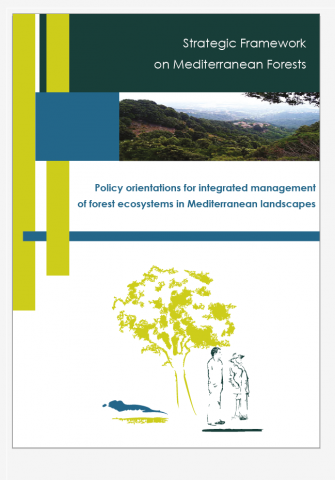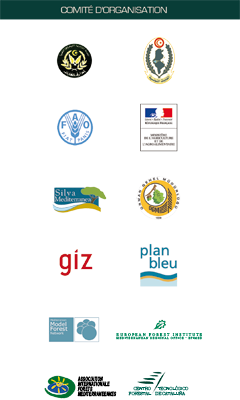Strategic Framework on Mediterranean Forests (SFMF)

Strategic Framework on Mediterranean Forests (SFMF): policy orientations for integrated management of forest ecosystems in Mediterranean landscapes
Policy orientations for integrated management: of forest ecosystems in Mediterranean landscapes
Forests and other wooded lands are highly integrated into Mediterranean landscapes. Through millennia, Mediterranean civilizations have been using multiple social, economic and environmental goods and services provided by these ecosystems. As a consequence the present landscapes are the result of a long-term interaction between populations and forest ecosystems. These multiples goods and services provided by forest ecosystems contribute directly to food security of rural population in the Mediterranean.
Important disparities between northern and southern rims of the Mediterranean are the result of both different degree of urbanization, industrialization and globalization of trade and tourism, and distinct population growth rates. As a consequence of socio-economic processes, forest landscapes and uses have suffered strong alterations and pressures (rural abandonment, aging of rural populations, intensification of production systems, etc.) causing drastic changes in vegetation structure and modifying the role of the primary sector in national economies.
In the North, where forestland is mostly privately-owned, vegetation has expanded due to land abandonment and its natural dynamics. The lack of management has increased the risk of wildfires. The anarchic urban development has also damaged several forest ecosystems. In the South, where forests are mostly publicly owned, human pressure on forest resources caused by dense and poor rural forest-dependent populations - is very high. Overgrazing and overexploitation of forest products like wood fuel are the most frequent pressures causing degradation, or even desertification, in the Mediterranean region. Several eastern countries are in transition between these two extreme situations due to a strong economic growth in the past ten years (e.g. Turkey, Albania and Croatia).
This pressure on Mediterranean forests is now exacerbated by climate change and socioeconomic crisis.
An improved regional cooperation (North-South and South-South) is key to cope with these new challenges.
You can download the complete documents in the following links:
Rationale of the Strategic Framework on Mediterranean Forests (English)
Strategic lines of the Strategic Framework on Mediterranean Forests (English)






